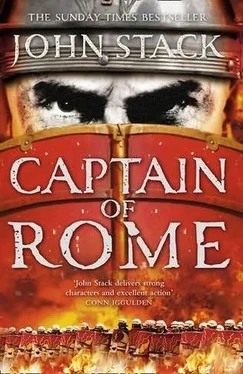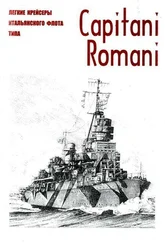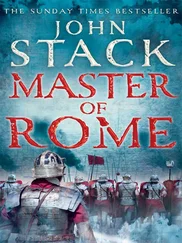John Stack - Captain of Rome
Здесь есть возможность читать онлайн «John Stack - Captain of Rome» — ознакомительный отрывок электронной книги совершенно бесплатно, а после прочтения отрывка купить полную версию. В некоторых случаях можно слушать аудио, скачать через торрент в формате fb2 и присутствует краткое содержание. Жанр: Исторические приключения, на английском языке. Описание произведения, (предисловие) а так же отзывы посетителей доступны на портале библиотеки ЛибКат.
- Название:Captain of Rome
- Автор:
- Жанр:
- Год:неизвестен
- ISBN:нет данных
- Рейтинг книги:3 / 5. Голосов: 1
-
Избранное:Добавить в избранное
- Отзывы:
-
Ваша оценка:
- 60
- 1
- 2
- 3
- 4
- 5
Captain of Rome: краткое содержание, описание и аннотация
Предлагаем к чтению аннотацию, описание, краткое содержание или предисловие (зависит от того, что написал сам автор книги «Captain of Rome»). Если вы не нашли необходимую информацию о книге — напишите в комментариях, мы постараемся отыскать её.
Captain of Rome — читать онлайн ознакомительный отрывок
Ниже представлен текст книги, разбитый по страницам. Система сохранения места последней прочитанной страницы, позволяет с удобством читать онлайн бесплатно книгу «Captain of Rome», без необходимости каждый раз заново искать на чём Вы остановились. Поставьте закладку, и сможете в любой момент перейти на страницу, на которой закончили чтение.
Интервал:
Закладка:
‘My fellow Romans!’ he began, his voice reaching every man in the hushed chamber. ‘We have reached a cross-roads in our fight with the Punici of Africa, a moment of truth when decisive action can and must prevail.’
A murmur of agreement rippled across the chamber.
‘As you all know, a Carthaginian plan to invade this very city was exposed,’ Regulus continued, indicating to Varro who stood in the wings, his first time in the Curia since announcing his defeat at Thermae, the tribune now bowing his head in acceptance of the splattering of applause from the Senate, ‘and subsequently thwarted at Tyndaris.’
The Senate clapped again, this time towards the podium but it quickly abated as Regulus raised his hand.
‘It was a bold plan, a decisive plan that, if it had succeeded, would have given the Carthaginians not only unconditional control of Sicily but also a new subservient state in their empire…a state named Rome.’
Many senators reacted with instinctive anger, shouting denial and cursing the Carthaginians who would dare such a thing. Regulus let them vent their antagonism, his eyes instead on those senators who remained silent, those who had understood the subtext of his words, many of them nodding their heads in pre-emptive approval.
‘I say to you then, Senators of Rome,’ Regulus shouted, overwhelming the cacophony of noise. ‘That we reverse this plan of the enemy, that we take their initiative and infuse it with Roman audacity!’ The Senate began to cheer. ‘With Roman courage!’ Regulus shouted, his voice struggling against the ovation, ‘and with the power of this mighty Republic!’
As one the Senate stood to applaud, the noise reaching a crescendo as Regulus stretched out his arms to encompass the power surging around him.
‘We will take this fight to the shores of Carthage herself!’ he roared, his final words tipping the Senate over into complete support for their leader.
Varro stood proudly beside his father as yet another senator approached to shake his hand. Regulus had finished his speech over an hour before and only now was the Curia beginning to empty, the session extended to allow the senior senators of the chamber to publicly back the consul’s plan, their orations infused with praise for Regulus and Varro and heavy with rhetoric that expounded the ideals of Rome, of how the overthrow of Carthage would bring civilisation to the shores of Africa. They were words that gave every tribune in the chamber cause to imagine their glorious fate in the approaching battle, but none more so that Varro, who saw his success at Tyndaris as only the beginning.
The crowd dissipated quickly and soon Varro’s father drifted off with a group of senior magistrates, grasping his son’s arm lightly as he left, his pride evident in every gesture. Varro walked slowly towards the colonnaded exit, the later afternoon sun creating blocks of light between the pillars through which droning insects traced lazy paths of flight. Varro stood still for a moment in one of the shafts of light, glancing briefly over his shoulder at the inner chamber and smiling slightly, the white brightness of the sun warm on his face. He turned again and was surprised by a figure standing in his path.
‘Congratulations, Tribune,’ the man said and Varro instantly recognised the voice.
‘Thank you, Senator Scipio,’ he replied and began to walk around him.
Scipio pre-empted the evasion and clasped Varro’s arm, holding it firm. ‘You have done well, Varro,’ he said, a hint of sarcasm in his voice.
Varro shrugged his arm clear, irritated by Scipio’s condescension. ‘I have done what I set out to do,’ he said. ‘Return to Rome with my honour restored.’
‘But what of our agreement?’ Scipio asked, ‘The Greek Perennis still lives.’
‘For now,’ Varro said dismissively, ‘and as for our agreement, it would seem I was mistaken in believing I needed your help.’
Scipio’s face coloured in anger, ‘An agreement made cannot be broken,’ he said, stepping closer until he was but mere inches from Varro’s face, ‘and you owe me.’
‘I owe you nothing, Scipio,’ Varro spat, ‘and your power in the Senate is no more. I will take my revenge on Perennis, but in my own time, and certainly not on your command.’
Scipio was about to retort but Varro brushed past him, walking quickly but confidently away until he was lost from sight. Only then did Scipio’s face contort into an expression of pure rage, his dismissal at the hands of an upstart like Varro striking at the very centre of his pride and honour.
‘So they all believe my power is no more,’ he whispered to himself, his mind summoning the memory of Regulus’s equally vile contempt, the thought fuelling his anger and hatred. He had raised Regulus from obscurity, rescued Varro from disgrace and both men had turned on him, their success giving them a false sense of invincibility, a belief they could dismiss Scipio and all he had done. But they were wrong, Scipio thought, his face twisting into a malicious smile, and with the patience of a hunter he set his mind to devising a new plan, one that would rid him of his enemies and finally achieve the death of a Greek captain who was at the centre of his hatred.
Atticus wiped the fine mist of sea-spray from his face as he leaned against the forerail of the Aquila, his gaze sweeping over the ordered formation of galleys fore and aft, their number stretching the length of the black shoreline of Fiumicino. He looked to the galleys closest to the Aquila in the five-abreast formation, triremes all who made up the centre of the line, the prized van-and rear-guard positions all granted to the pre-eminent quinqueremes who accounted for nearly half of the three-hundred strong Classis Romanus, a immense fleet that had taken three weeks to assemble.
‘Impressive…’
Atticus turned to find Septimus standing behind him. He was clad in full battle armour, the breastplate newly reshaped, the battle scars removed. Atticus nodded and looked to the fleet once more, a curious sensation in his chest as he repeated Septimus’s description in his mind, the display of Rome’s power mesmeric.
‘Orders from the vanguard, Captain,’ Lucius said, interrupting Atticus’s thoughts again. ‘The fleet is to heave-to at Ostia to allow the flagship and the senatorial galleys to take point.’
‘Very well, Lucius,’ Atticus replied. ‘Inform Gaius and stand by at the helm’. Lucius nodded and walked quickly away.
‘How are the new troops?’ Atticus asked of Septimus, his thoughts now on his own galley.
‘They’re good men,’ Septimus replied, ‘all from VII of the Fifth.’
Atticus nodded, glancing past Septimus to the assembled ranks of his replenished demi-maniple on the main deck.
‘So, our first stop is Brolium?’ Septimus asked, changing the subject.
‘Naples first,’ Atticus replied, ‘to pick up the transport ships that have been assembled there along with the replacement troops for the Ninth. Then we sail for Brolium.’
Septimus nodded, his thoughts straying to Marcus. The devastated Ninth legion had never been called to join the Second in fighting the Carthaginians to the south of Brolium but with the enemy now in full retreat and the replacement troops bringing the Ninth back up to full strength, they were the obvious choice to sail with the invasion fleet.
‘We should be in Brolium in about four days,’ Atticus added. ‘Two days to re-supply and embark the Ninth and then a full week to Agrigentum where the Sixth Legion will board.’
Septimus nodded again, marvelling anew at the scale of the invasion force. Three years before four legions, forty thousand men, had crossed the Strait of Messina to invade Sicily, but that crossing had taken less than an hour over a mere four miles of calm coastal water. Now the invasion was striking at the very heart of the Carthaginian Empire.
Читать дальшеИнтервал:
Закладка:
Похожие книги на «Captain of Rome»
Представляем Вашему вниманию похожие книги на «Captain of Rome» списком для выбора. Мы отобрали схожую по названию и смыслу литературу в надежде предоставить читателям больше вариантов отыскать новые, интересные, ещё непрочитанные произведения.
Обсуждение, отзывы о книге «Captain of Rome» и просто собственные мнения читателей. Оставьте ваши комментарии, напишите, что Вы думаете о произведении, его смысле или главных героях. Укажите что конкретно понравилось, а что нет, и почему Вы так считаете.











